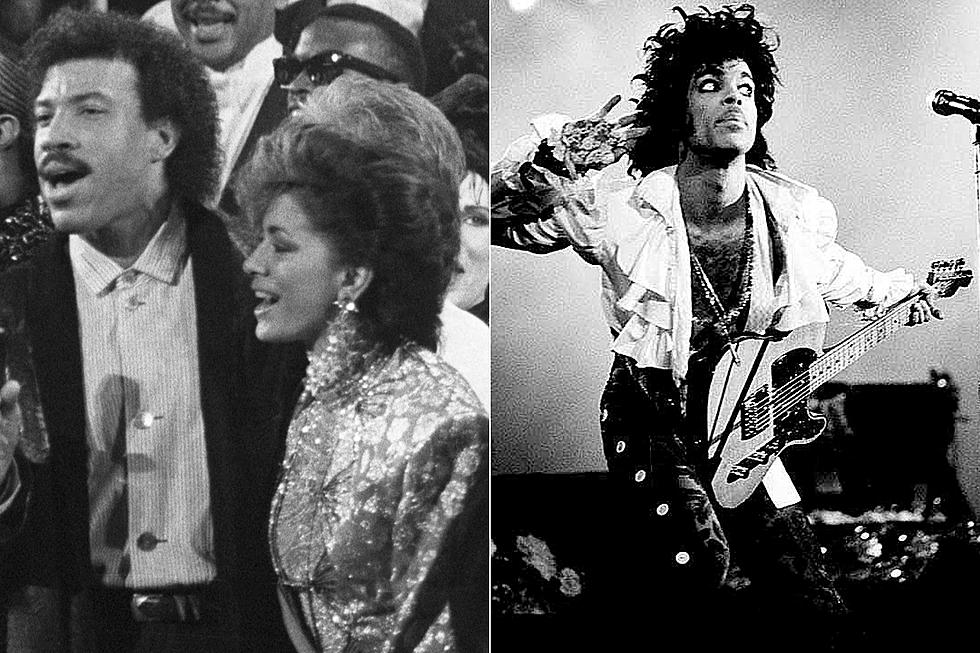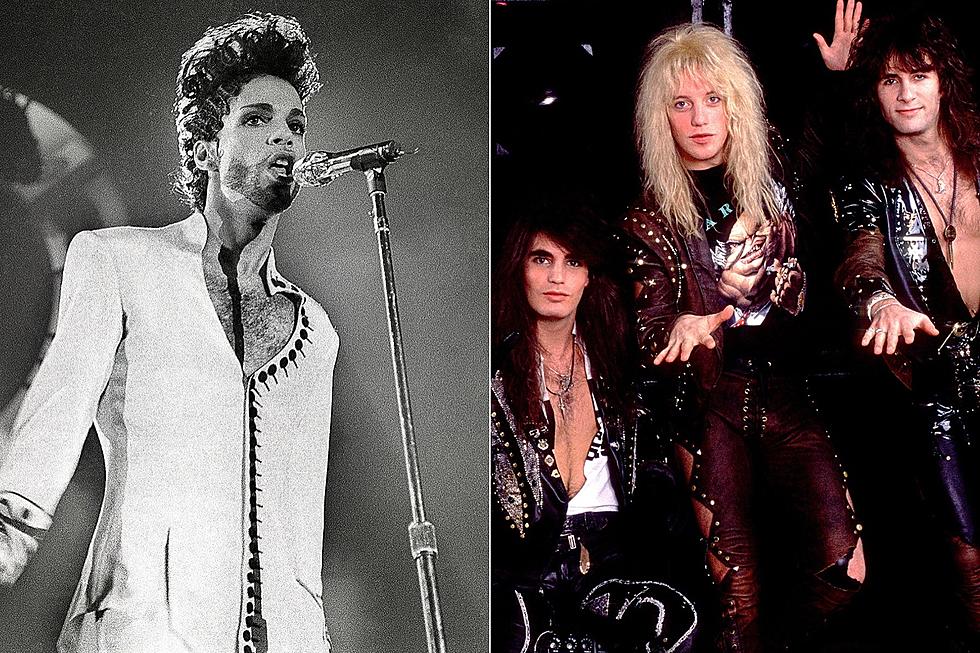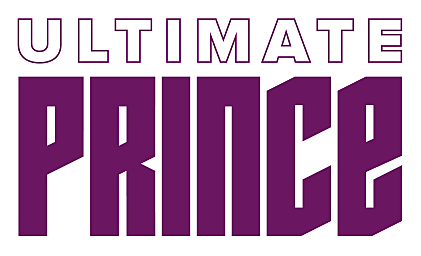
Prince Channels James Brown, Gets Funky and Raw on ‘Gett Off’
Prince entered the '90s bearing little resemblance to the Prince who entered the '80s.
Back then he was wearing a thong and thigh-high boots, and singing songs about blow jobs and having sex with his sister. "Darling Nikki" aside, he cut back on most of the salacious stuff as Purple Rain made him one of the biggest stars on the planet.
His first two records of the new decade were pretty much par for the course at the time. Graffiti Bridge, from 1990, was a soundtrack album filled out with guest stars and reworked songs from the vault; 1991's Diamonds and Pearls was his first LP with a new band, the New Power Generation, and much of it sounded like testing grounds to see just how much the new ensemble was capable of.
With "Gett Off," the album's first single, they proved to be capable of quite a lot. More importantly, they pushed Prince to his downright nastiest since Nikki pleasured herself in a hotel lobby seven years earlier. (Some of the songs on The Black Album got close, but that record, recorded in 1986 and 1987, was shelved at the last minute and wasn't officially released until 1994.)
The song was pieced together from fragments and musical ideas borrowed from earlier tracks. "Glam Slam," which appeared on 1988's Lovesexy, is the earliest inspiration, lending its title to an unreleased song called "Glam Slam '91" that briefly showed up on a Minneapolis radio station in January 1991 as a promotion for Prince's new same-named club.
Some of the new song's lyrics (like the line "Everybody grab a body / Pump it like you want somebody") were directly lifted into "Gett Off," which was released as a single on July 29, 1991, more than two months before Diamonds and Pearls came out.
Musically, "Glam Slam '91" owed more to "Love Machine," a cut from 1990's Graffiti Bridge, which also included a song called "New Power Generation." Even though Prince's backing group of that name made its debut on Diamonds and Pearls, the seeds were planted on that eponymous track, which was released as a maxi-single that included a series of remixes on its B-side, one of which was called "Get Off."
Watch Prince's "Gett Off" Video
A few months later, Prince added his new band, a few lyrical and musical tweaks and an extra "T" to "Get Off," and the first single from his 13th album was born.
Prince found inspiration in other places too, starting with James Brown, whose 1969 song "Mother Popcorn" gave "Gett Off" one of its most memorable passages. He even drops the Godfather of Soul's name ("Reminds me of something James used to say") -- before launching into a variation on "Popcorn"'s "Some like 'em fat, and some like 'em tall ... I like 'em proud / ... You gotta have a mother for me" with his own "I like 'em fat / I like 'em proud / You gotta have a mother for me."
But Prince goes Brown one better by following up with "Now move your big ass round this way so I can work on that zipper, baby / Tonight you're a star, and I'm a big dipper." And suddenly we're back to 1982, when Prince was declaring, "I'm not saying this just to be nasty / I sincerely wanna f--- the taste out of your mouth."
Add New Power Generation rapper Tony M.'s "23 positions in a one-night stand" come-ons in the chorus, and you've got one of Prince's funkiest, and sexiest, songs.
And it almost wasn't on Diamonds and Pearls. "Gett Off" was released to clubs in early June to mark Prince's 33rd birthday. A month later the single came out. And right before the album's release on Oct. 1, the song replaced "Horny Pony," a "Gett Off" B-side that's also sampled in the hit, on the record. (Look closely at Diamond and Pearls' back cover, and you can see "Horny Pony" written in red over "Gett Off"'s title.)
The song stalled at No. 21 on the pop chart, but it was one of Prince's liveliest singles in years. The new group -- which included singer Rosie Gaines as well as Tony M., both of whom received spotlight moments on "Gett Off" -- seemed to energize Prince. The track also featured former Revolution member Eric Leeds, who checked in with the most rad flute solo this side of Jethro Tull, and a needle-drop on a dusty vinyl record that signaled the Brown rip. It was the start of a new era that heralded the future -- all by dipping into the past.
More From Ultimate Prince










